Most people take their vehicles into the shop for standard maintenance. While oil changes, transmission fluid changes, and inspections are essential, there is more you can do for your vehicle. In fact, you can clean your engine, injectors, and fuel tank in your driveway. The secret? Fuel additives.
Over time, debris builds up in your vehicle. Unfortunately, debris is the last thing you want in your engine. You’ll end up with pistons cracking, misfires, and accelerated engine wear. While fuel additives used to be ineffective in the past, modern mixtures that use polyetheramine (PEA) perform well.
Fuel additives work because nitrogen-based detergents break down debris and help your engine operate smoothly. Still, some mixtures are better than others, so we’re going to take you through the best fuel additives to help you narrow down your options.
- Things to Consider When Shopping for Fuel Additives
- Top 10 Best Fuel Additives 2026
- 1. Best Overall Fuel Additive: Sea Foam SF-16 Motor Treatment
- 2. Best Fuel Additive for Old Cars: Techron Concentrate Plus
- 3. Best Budget Fuel Additive: Lucas LUC10013 Fuel Treatment
- 4. Best Premium Fuel Additive: Red Line Complete Fuel System Cleaner
- 5. Best for Diesel Engines: Hot Shot's Secret Everyday Diesel Treatment
- 6. Most Versatile: STA-BIL Fuel Treatment
- 7. Best for Fuel Injectors: Star Tron Enzyme Fuel Treatment
- 8. Longest-Lasting: Royal Purple Max-Clean
- 9. Best PEA Fuel Additive: Gumout Multi-System Tune-Up
- 10. Best for Heavy Machinery: Howes Diesel Treat
- Everything You Need to Know About Fuel Additives
- Tips for Working With Fuel Additives
- FAQ
- Final Words
Things to Consider When Shopping for Fuel Additives
There are many fuel additive options on the market. While the goal of each product is the same, to clean your engine, some additives clean different portions of the engine. So, before you consider the best fuel additives, take some time to look at features that separate one product from another.
Engine Type
First and foremost, we’ll go over the different engine types. While electric cars have entered the market, they’re not relevant for fuel additives. So, we’ll be going over standard gasoline engines and diesel engines.
Gasoline
Gasoline engines are the most common. Most cars on the road use traditional engines. Still, there are different fuel types that work in every engine. For example, some cars run on 93 octane gas, while others run on 87 octane gas. For this reason, you need to choose a fuel additive that works for your car’s fuel type. Luckily, most fuel additives work for every fuel type; just keep an eye out for specifics.
Diesel
Diesel engines are more robust than traditional gasoline engines. These engines are massive and run on diesel gasoline instead of conventional gasoline. If you have a diesel engine, you need to be careful because adding the wrong solution to your fuel can cause engine damage. Some products work for every engine, but you’re better off with a diesel-specific additive for diesel engines.
Application
Once you know your fuel type, it’s time to consider the type of fuel additive you need. This is where shopping gets tricky because engines have many different parts. While some products clean the entire engine, other mixtures have specific uses. For example, some fuel additives clean fuel injectors, while others preserve stored fuel.
Amount
The last thing to look for is the amount of fuel additive you’re getting. Most products give you a measurement in ounces, but some products come with as much as one gallon. The amount you want to get depends on your budget and how much of the additive needs to be inserted into your fuel mixture. While some products will clean your engine with one fill, to get rid of dense carbon deposits, you might need to use it more than once.
| Product | Price | Engine Type | Application | Amount | Rating |
|---|---|---|---|---|---|
| Sea Foam SF-16 Motor Treatment | Gas and Diesel | Fuel injectors and cylinders | 16oz | 5 | |
| Techron Concentrate Plus | Gasoline | Fuel injectors and cylinders | 20oz | 5 | |
| Lucas LUC10013 Fuel Treatment | Gas and diesel | Fuel injectors, fuel tank | 1 gallon | 5 | |
| Red Line Complete Fuel System Cleaner | Gasoline | Fuel injectors, fuel tank, cylinders | 15oz | 4.5 | |
| Hot Shot's Secret Everyday Diesel Treatment | Diesel | Engine performance | 16oz | 4.5 | |
| STA-BIL Fuel Treatment | Gasoline | Fuel injectors, cylinders | 10oz | 4 | |
| Star Tron Enzyme Fuel Treatment | Gasoline, 87 octane | Fuel injectors, fuel tank, cylinders | 8oz | 4 | |
| Royal Purple Max-Clean | Gasoline | Fuel injectors, fuel tank, cylinders | 20oz | 4 | |
| Gumout Multi-System Tune-Up | Gasoline and diesel | Fuel injectors, fuel tank, cylinders | 16oz | 4 | |
| Howes Diesel Treat | $ | Diesel | Fuel Injectors, fuel tank | 64oz | 3.5 |
Top 10 Best Fuel Additives 2026
1. Best Overall Fuel Additive: Sea Foam SF-16 Motor Treatment
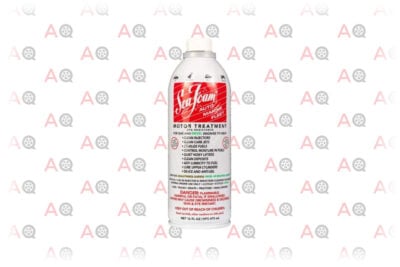
Editor’s Rating:
Quick Facts
- Engine Type: Gas and Diesel
- Application: Fuel injectors and cylinders
- Amount: 16oz
Sea Foam SF-16 Motor Treatment is one of the most popular fuel additives. The company was founded in 1942 to clean the engines of boats but broke into the automotive industry. While the formula was designed for boats, it works in every engine. From small engines to large diesel motors, the solution cleans the cylinders, fuel injectors, and crankcase. It’s also a 100% pure petroleum blend and EPA approved.
What Sets It Apart
Sea Foam SF-16 Motor Treatment is unique because of the mixture. Unlike other fuel additives, this product is well-rounded. Instead of using it for one application, like your car, you can use it for any engine you have at home. Furthermore, it works in marine applications and for agricultural equipment too. It’s also one of the most budget-friendly options, despite being one of the best brands in the industry.
Things to Consider
Sea Foam SF-16 Motor Treatment does what it’s intended to do, but it’s complicated to order. First and foremost, you can’t return the product, even if you don’t open it. Secondly, there are additional instructions you need to follow before it gets to your desired location. Overall, this makes the ordering process lengthy, which is frustrating for some shoppers.
If you’re looking for an alternative that’s easier to order, Chevron Techron Concentrate Plus is a great alternative. It can be used for the same applications and does the same job.
Who It’s For
If you’re looking for a simple fuel additive, Sea Foam SF-16 Motor Treatment is a great choice. The company has been around since 1942, and their product is cheap and efficient. It’s also easy to use because you only have to add it to your fuel tank.
Pros
- EPA approved
- 100% pure petroleum
- Works for all applications
- Works for all engine types
Cons
- The ordering process is time-consuming
- You can't return it
2. Best Fuel Additive for Old Cars: Techron Concentrate Plus
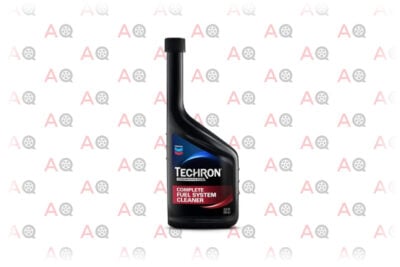
Editor’s Rating:
Quick Facts
- Engine Type: Gasoline
- Application: Fuel injectors and cylinders
- Amount: 20oz
Techron Concentrate Plus is an excellent fuel additive for gasoline cars. It cleans every component that your fuel reaches, including the tank, cylinders, and fuel injectors. Unlike other Techron fuel additives, this version has a higher concentration of PEA. For this reason, Techron Concentrate Plus can reduce carbon build-up in your cylinders with ease.
The company recommends using this solution once every 3,000 miles, making it cost-effective to use for the long-term. The bottle also features a long neck, making it easy to pour it into your gas tank without needing a funnel.
What Sets It Apart
Techron Concentrate Plus is unique because of the PEA concentration. Most fuel additives clean small carbon deposits within the cylinders, injectors, and fuel tank. Still, most products are unable to dissolve more massive build-ups. This makes Techron Concentrate Plus superior to most products.
Things to Consider
The only drawback to this product is its lack of versatility. Sure, it will clean your gasoline engine, but diesel vehicles are left out. If you like the strength of this solution but need a product for diesel vehicles, Howes Diesel Treat is a great alternative. Like this Techron product, it dissolves dense carbon deposits.
Who It’s For
Techron Concentrate Plus is an excellent product for people with older vehicles. If you have a car that was produced before the 2000s, there is a good chance that thick carbon deposits are lining the cylinders. This makes this fuel additive the best choice because it removes the densest carbon deposits.
Pros
- Removes dense carbon deposits within the cylinders, injectors, and gas tank
- The long nozzle makes it easy to pour into your gas tank
- Only needs to be used once every 3,000 miles
Cons
- Not suitable for diesel vehicles
3. Best Budget Fuel Additive: Lucas LUC10013 Fuel Treatment
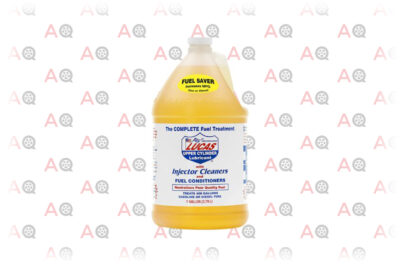
Editor’s Rating:
Quick Facts
- Engine Type: Gas and diesel
- Application: Fuel injectors, fuel tank
- Amount: 1 gallon
Lucas LUC10013 Fuel Treatment is a well-rounded fuel additive designed to clean your entire fuel system. The solution is made with PEA as the active detergent, which breaks down debris and carbon deposits. Overall, it gives your vehicle’s fuel system a much-needed revival. It can increase your mpg and preserve the lifespan of your fuel tank and cylinders.
What Sets It Apart
Lucas LUC10013 Fuel Treatment is unique because of the amount you get. While most products give you a few fluid ounces, Lucas Oil provides you with a gallon. If you use this product every 3,000 miles, as recommended by the brand, it can last years. For this reason, Lucas LUC10013 Fuel Treatment is the best value.
Lucas LUC10013 Fuel Treatment is also one of the few additives that can help you pass emissions during inspection. If your vehicle is burning oil or running rich, it can bring compression back to normal.
Things to Consider
Lucas LUC10013 Fuel Treatment is excellent for your fuel injectors and fuel system, but it doesn’t remove carbon as well as advertised. While it removes small deposits built up within fuel injectors, it struggles to remove dense deposits that form around the pistons. If you have an older car that’s never been cleaned before, you should use Techron Concentrate Plus instead.
Who It’s For
Lucas LUC10013 Fuel Treatment is for shoppers that are looking for a one-time purchase. This is a product that you can keep in your garage for years and use as needed. Furthermore, you get enough fuel additive to last you well over a year or two, even if you commute for work.
Pros
- Comes with 1 gallon of fuel additive
- PEA-based solution
- Works for gas and diesel cars
Cons
- Only works for fuel injectors and cylinders
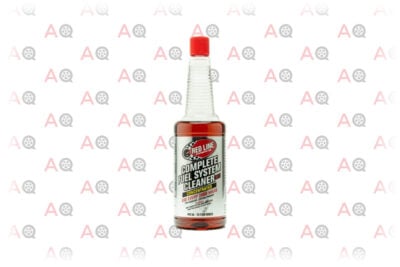
Editor’s Rating:
Quick Facts
- Engine Type: Gasoline
- Application: Fuel injectors, fuel tank, cylinders
- Amount: 15oz
Red Line Complete Fuel System Cleaner is designed to enhance your driving experience. The solution increases your mpg, reduces gumming, and cleans your entire fuel system. While this solution does a lot for your vehicle, the primary function is to improve your vehicle’s performance. You’ll experience better acceleration from a more consistent fuel injection spray and a more stable idle.
What Sets It Apart
Red Line Complete Fuel System Cleaner is unique because it focuses on the performance of your vehicle while cleaning the system. Most fuel additives use the same chemicals to keep your system clean, but Red Line has been using a formula that’s proven to work since 1972. The company favors performance and ensures that cars perform as they’re supposed to. Plus, with this fuel additive, you can run your vehicle on lower octane. For example, instead of 93, you can use 91.
Things to Consider
Red Line Complete Fuel System Cleaner is excellent, but it doesn’t work for diesel vehicles. While the company is performance-oriented, we don’t like how they left diesel engines out. Diesel engines have become more common in motorsports, which is why this is shocking. If you need a diesel alternative, Howes Diesel Treat is a great alternative. Like Red Line, it enhances the performance of diesel vehicles.
Who It’s For
Red Line Complete Fuel System Cleaner is for people that own sports cars. If you have a nice car that you like to take out a few times each year, this solution will keep the engine in excellent condition. Furthermore, if you drive an eight-cylinder engine every day, this product can help you save money in the long-run by allowing you to use lower octane gasoline.
Pros
- Enhances mpg
- Cleans the entire engine
- Reduces carbon deposits
- Excellent for sports cars and large SUVs
- Allows you to run lower octane gasoline (up to 2 points)
Cons
- Not suitable for diesel engines
- More expensive than competitors
5. Best for Diesel Engines: Hot Shot's Secret Everyday Diesel Treatment
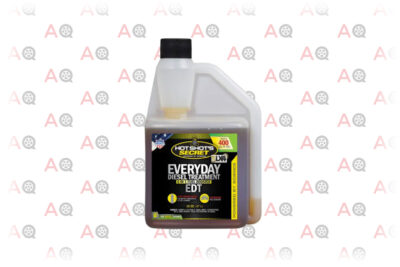
Editor’s Rating:
Quick Facts
- Engine Type: Diesel
- Application: Engine performance
- Amount: 16oz
Hot Shot’s Secret Everyday Diesel Treatment is one of the best formulas for diesel performance. It takes traditional diesel fuel and turns it into a premium blend. The new premium blend reduces moisture, prevents corrosion, and enhances the engine’s overall performance. This product is something you’ll need to use with every new tank of fuel, so you’ll want to keep some extra stock handy.
What Sets It Apart
Hot Shot’s Secret Everyday Diesel Treatment is unique because it focuses on improving engine performance. While it also cleans the engine, this mixture enhances diesel fuel and turns it into a premium blend similar to 93 octane gasoline. The combination works because it boosts cetane performance, which uses nitrates to speed up internal combustion.
Things to Consider
While Hot Shot’s Secret Everyday Diesel Treatment works well, it doesn’t clean diesel engines well. It’s more of a performance-based product, so if you need a fuel additive to clean your engine Howes Diesel Treat is a great alternative. This fuel mixture also doesn’t work for traditional gasoline. For gasoline cars, any of the non-diesel fuel additives are a great choice.
Who It’s For
Hot Shot’s Secret Everyday Diesel Treatment is an excellent product for diesel enthusiasts. If you take pride in your vehicle’s performance or have a diesel sports car, you’ll want to add this fuel additive into your diesel fuel. It increases combustion and makes vehicles harder and faster.
Pros
- Enhances diesel engine performance
- Removes moisture from the engine
- Makes diesel fuel a premium fuel
Cons
- Only suitable for diesel vehicles
- Doesn't clean carbon deposits
6. Most Versatile: STA-BIL Fuel Treatment
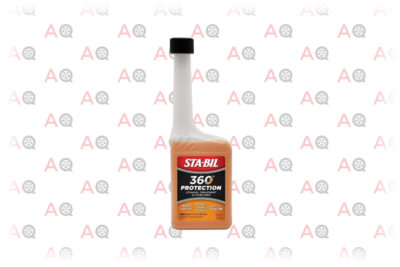
Editor’s Rating:
Quick Facts
- Engine Type: Gasoline
- Application: Fuel injectors, cylinders
- Amount: 10oz
STA-BIL Fuel Treatment is a well-rounded fuel additive that works in all gasoline engine applications. This means you can use it in cars, motorcycles, lawnmowers, and anything else you can think of. Its concentration is also strong, so you only need five ounces of the additive for every five gallons of gasoline. While the bottle is small, you don’t need a lot of fuel additives to see the change you need.
What Sets It Apart
STA-BIL Fuel Treatment is unique because it performs well across the board. It cleans the engine’s injectors, stabilizes fuel, and cleans fuel tanks. It’s also one of the most affordable products and cleans a generous amount of fuel per ounce. Overall, it’s a well-rounded product you can rely on.
Things to Consider
STA-BIL Fuel Treatment is excellent, but it doesn’t perform well in every area. While it offers balanced performance for most engine applications, it fails to clean dense carbon deposits within its cylinders. Plus, if you have an engine with more than four cylinders, the performance drops off even more. If you need to clean your engine’s cylinders, consider Techron Concentrate Plus as an alternative.
Who It’s For
STA-BIL Fuel Treatment is an excellent product for someone that wants to maintain their vehicle. It’s a great product to keep in your garage and use every 3,000 miles. If you like to keep up on fluid changes, you might as well add some STA-BIL Fuel Treatment into your routine. It doesn’t clean engines with dense carbon deposits, but it will prevent them from building up in the first place.
Pros
- Cleans five gallons per ounce
- Cleans every portion of the engine
- Great for engine maintenance
Cons
- Doesn't remove dense carbon deposits
7. Best for Fuel Injectors: Star Tron Enzyme Fuel Treatment
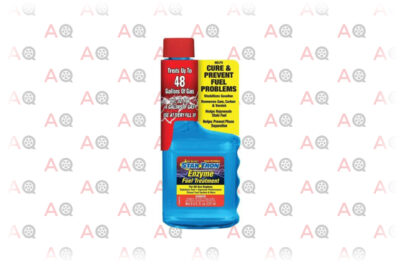
Editor’s Rating:
Quick Facts
- Engine Type: Gasoline, 87 octane
- Application: Fuel injectors, fuel tank, cylinders
- Amount: 8oz
Star Tron Enzyme Fuel Treatment is a unique fuel additive that has many benefits. First and foremost, it cleans every portion of the engine it’s used on. It cleans the fuel injectors, carburetor (if it has one), and cylinders. Secondly, it works for more than one application. It can be added to boats, small engines, and anything that runs on 87 octane gasoline.
What Sets It Apart
Star Tron Enzyme Fuel Treatment is unique because it’s an all-purpose product. It works for most cars, boats and small engines. Furthermore, unlike competitors, this fuel additive also perseveres your fuel. For example, if you have fuel in a generator from last year, you can use this product to rejuvenate the engine and gain better performance.
Things to Consider
We like Star Tron Enzyme Fuel Treatment, but it’s a limited product. The issue is that it only works for regular gasoline, which is 87 octane. If you drive a vehicle that needs a higher octane gas, e-85, or diesel fuel, you’ll have to look elsewhere. If you’re in this category, don’t panic because Gumout Multi-System Tune-Up is a great alternative that works for all fuel types.
Who It’s For
If you drive an older vehicle or one that runs on regular gasoline, this is one of the best products you can choose. While most products focus on every fuel type, this solution is specifically designed to clean engines running 87 octane. So, if you run 87 at the pump, this product will give you the best results. Plus, most modern vehicles run on regular unless it’s a sports car or SUV. Star Tron Enzyme Fuel Treatment is also an excellent choice for shoppers that store fuel in gas cans or small engines.
Pros
- Cleans the entire fuel system
- Works for small engines and boats
- Can also be used as a fuel preservative
- Low price
Cons
- Only suitable for 87 octane
8. Longest-Lasting: Royal Purple Max-Clean
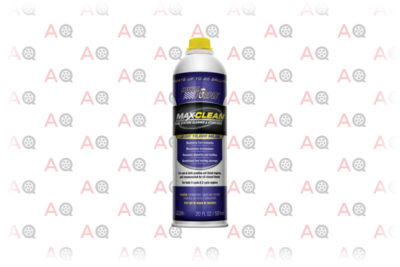
Editor’s Rating:
Quick Facts
- Engine Type: Gasoline
- Application: Fuel injectors, fuel tank, cylinders
- Amount: 20oz
Royal Purple Max-Clean is designed to clean your entire engine. Furthermore, it prevents components from rusting or corrosion. The blend is PEA-based, which is proven to reduce and breakdown dense carbon deposits. It also removes alcohol from fuel mixtures and helps engines run cleaner, which reduces emissions and boosts performance.
What Sets It Apart
Royal Purple Max-Clean is unique because the company has done its research. While most products list the benefits, Royal Purple knows how well the product works. It improves fuel economy by an average of 3.2 percent, increases horsepower by 2.6 percent, and reduces emissions by up 18 percent. We love how this company displays the numbers, which shows confidence in the product.
Royal Purple Max-Clean is also unique because you don’t need to use it as often as other products. The company recommends using the 20oz bottle once every 10,000 miles. Compared to most products that need to be used every 3,000 miles, this is a massive leap.
Things to Consider
While Royal Purple Max-Clean gets the job done, the numbers could be higher. Improving fuel economy is excellent, but 3.2 percent is not as high as other products. For example, Red Line Complete Fuel System Cleaner does a better job of boosting fuel economy.
Who It’s For
Royal Purple Max-Clean is for people that don’t want to use fuel additives often. You only need to use it once every 10,000 miles, which is better than most fuel additives. This is important because it costs less to use this product in the long-term.
Pros
- Preserves engine performance for 10,000 miles
- Cleans the entire engine
- The company shows the average performance increases
Cons
- Doesn't improve fuel economy by much, compared to other products
9. Best PEA Fuel Additive: Gumout Multi-System Tune-Up
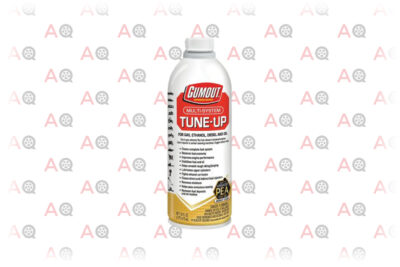
Editor’s Rating:
Quick Facts
- Engine Type: Gasoline and diesel
- Application: Fuel injectors, fuel tank, cylinders
- Amount: 16oz
Gumout Multi-System Tune-Up is one of the most popular fuel additives around. The company sponsors several automotive influencers and ensures that its product is the best it can be. It’s clear that Gumout went the extra mile because of the PEA concentration in this solution. It’s strong enough to clean injectors, fuel tanks, and dense carbon. Even residual build-up in cylinders can be cleaned after a few uses.
What Sets It Apart
Gumout Multi-System Tune-Up is unique because it does a consistent job across the board. While other products are better at cleaning specific portions of your engine, this product does an above-average job all-around. Plus, Gumout is a mechanic-trusted brand and EPA approved.
Things to Consider
Gumout Multi-System Tune-Up is above-average across the board, but this isn’t always a good thing. For example, there have been numerous experiments conducted by non-sponsors of the company that discovered the product doesn’t clean dense carbon deposits in engine cylinders. While it cleans the little things, it doesn’t always work for massive clusters.
If you need a product that can control dense carbon deposits, Techron Concentrate Plus is a great alternative. It performs well in most areas but does an even better job on engine internals.
Who It’s For
If you have a newer vehicle, Gumout Multi-System Tune-Up is a great choice. If you add it into your fuel mixture once every 3,000 miles, it will help you maintain your engine and clean the components of debris. Unfortunately, if you have an older vehicle, you might want to look elsewhere as it’s not as strong.
Pros
- Budget-friendly
- Popular brand
- Proven results
- High PEA concentration
Cons
- Doesn't clean dense clusters of carbon build-up
10. Best for Heavy Machinery: Howes Diesel Treat
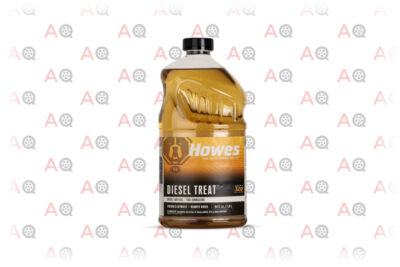
Editor’s Rating:
Quick Facts
- Price: $
- Engine Type: Diesel
- Application: Fuel Injectors, fuel tank
- Amount: 64oz
Howes Diesel Treat is one of the few diesel-focused fuel additives you can find. The solution removes alcohol from diesel fuel, cleans fuel injectors, prevents gelling, and helps the vehicle idle without generating smoke. The solution also contains no alcohol and cleans up to 360 gallons worth of fuel in summer conditions.
What Sets It Apart
This product is unique because it works for the heaviest machinery. While it works for diesel trucks, it also works for RVs, tractors, and home heating oil. This makes the fuel additive useful for many applications, which most traditional gasoline fuel additives are not.
Things to Consider
While Howes Diesel Treat works for larger engines and home applications, you can’t use it with gasoline cars. If you need an alternative that you can use for traditional gasoline engines, a product like Techron Concentrate Plus is a great choice.
Howes Diesel Treat also fails to improve diesel engine performance, which is a deal-breaker for some shoppers. If you’re looking for a better understanding, Hot Shot’s Secret Everyday Diesel Treatment is a great alternative.
Who It’s For
Howes Diesel Treat is one of those products that are good to keep around the house, especially if you have a diesel vehicle or work in agriculture. You can use it for things like your oil burner or use it to preserve the lifespan of any diesel engine. Still, for people with gasoline vehicles, it’s best to look elsewhere.
Pros
- Cleans diesel fuel injectors, fuel tanks, and cylinders
- Improves the lifespan of diesel fuel
- Reduces mountain
- Prevents rust and corrosion of internal components
Cons
- Only suitable for diesel vehicles
- Doesn't improve the performance of diesel vehicles by a notable amount
Everything You Need to Know About Fuel Additives

Shopping for fuel additives is not always straightforward. There are a lot of factors you need to consider before you choose a product. Even with the ten best fuel additives in front of you, narrowing down your options is challenging. So, we’re going to take you through everything you need to know about fuel additives. Here, we’ll narrow down your choices, provide some tips, and answer any questions you might have.
Engine Types
While there are a lot of engine types, the two main engines are gasoline and diesel. While the engine does the same job, they’re designed differently. For this reason, you need to make sure you choose the right fuel additive for your vehicle’s engine.
Gasoline
Gasoline engines are the most common engines you’ll find on the road. Most vehicles use these engines and run 87, 89, 91, or 93 octane. For these vehicles, you’ll want a fuel additive that’s designed for the type of gasoline you’re using. One example is Star Tron Enzyme Fuel Treatment. It’s designed for engines that use 87 octane, which is the most common fuel used in modern cars.
Still, there are other octanes. If you drive a high-performance vehicle, there is a good chance that it runs on 91 or 93 octane gasoline. For these vehicles, consider a product like Red Line Complete Fuel System Cleaner.
Diesel
Diesel vehicles run off of different gasoline than traditional cars. This fuel compresses at a higher ratio, which provides more torque and towing capabilities. This is why you’ll find most diesel engines in heavy-duty trucks or boats. For diesel engines, you’ll want to shop for a diesel-specific fuel additive like Howes Diesel Treat.
Applications
Fuel additives are versatile products that have a lot of unique applications. While some products focus on a specific engine component, others offer a comprehensive cleaning. So, we’re going to take you through a handful of applications and recommend the best fuel additives for each one.
Fuel Injectors
Fuel injection is a recent innovation. Older vehicles don’t have them, but almost every newer car does. This is because fuel injection is more efficient, easier to repair, and better for combustion. Still, fuel injection doesn’t always work. Once a car is driven over 50,000 miles, there is a good chance that fuel injectors will begin to clog up or spray uneven fuel. When this happens, combustion timing is thrown off, and fuel efficiency suffers.
If you’re looking to clean your fuel injectors, the best fuel additive for gasoline vehicles is STA-BIL Fuel Treatment. If you drive a diesel, you’ll want to consider Howes Diesel Treat.
Cylinders
It’s hard to know whether or not your cylinders are building up carbon. Still, if you don’t have the tools to check, most cars over 25,000 miles have carbon build-up in cylinders. So, it’s safe to assume that your engine has some carbon build-up.
To prevent this altogether or reduce carbon deposits, you’ll want to use a powerful fuel additive. One of the most potent fuel additives is Techron Concentrate Plus. It’s one of the few fuel additives strong enough to break down dense carbon. Still, to thoroughly clean the cylinders, it will take a couple of uses.
Performance Boost
Some fuel additives are great for engine maintenance, but others offer performance enhancements. If you drive a high-end car and you’re looking to squeeze more horsepower out of your engine, fuel additives can help.
The best fuel additive for performance is Red Line Complete Fuel System Cleaner is the best choice. While it cleans the engine too, its primary purpose is to enhance performance. Furthermore, you can run a lower octane gasoline if you add the solution to your fuel.
Tips for Working With Fuel Additives
Fuel additives are specific products, but you need to use them correctly. If you use too much, too little, or the wrong type, you’ll end up with a cracked piston rod or blown gasket. We want to make sure you get the most value out of fuel additives, so we’re going to take you through a few quick tips.
Check Your Cylinders Before Choosing a Fuel Additive
First and foremost, before you use a fuel additive, you need to figure out what your vehicle needs. To get a good idea of this, we recommend removing a spark plug and looking in each of your cylinders with a snake-style camera. Look for signs of carbon deposits, which look like black spots.
If you have many of them, you’ll want to choose a product like Techron Concentrate Plus, which is strong enough to remove dense carbon deposits. If your cylinders have minimal carbon build-up, you can focus on cleaning the rest of your engine with a basic fuel additive. You should also follow this rule for diesel engines, generators, and marine applications.
Use the Right Amount
When you use a fuel additive, you need to use the right amount. The good news is that most products come with just enough fuel additive to use on a full tank of gas. Still, if you get a more considerable amount of additive, take some time to read the label and apply the right amount.
Use a Funnel
Some products don’t come with a nozzle to pour the additive through. This is also common in products that offer a gallon or more of fuel additive. If you find yourself in this situation, don’t panic; just make sure you have a funnel handy. Luckily, funnels are inexpensive products that you can find at most hardware stores, even grocery stores. Still, we recommend using a silicone funnel to ensure that the solution remains intact.
FAQ
Do Fuel Additives Work on Cars With Carburetors?
Fuel additives work for many engine components, so there are plenty of products that clean carburetors. Most fuel additives that clean fuel injectors will perform the same task for carburetors.
Do I Need a Fuel Additive?
Most modern cars run well, but engines aren’t always clean. Combustion is messy, which leads to carbon deposits within cylinders and debris in the fuel tanks. Furthermore, fuel injectors and carburetors become clogged over time, which reduces fuel efficiency. You don’t need to use a fuel additive, but using one perseveres your engine and improves fuel efficiency.
Can Fuel Additives Damage Your Engine?
People worry about putting a foreign substance in their engine, for a good reason. Luckily, there is nothing to worry about with fuel additives. As long as a fuel additive uses a PEA-based solution, it’s safe to put in your vehicle.
Do Fuel Additives Work?
Many people worry about the quality of fuel additives. For such little money, the promise of a clean engine seems too good to be true. Well, despite this belief, fuel additives work. The best fuel additives reduce carbon deposits, clean debris, and prime fuel injectors.
Final Words
Fuel additives are unique products to shop for. Depending on your vehicle, some products work better than others. For this reason, you need to choose carefully. If one product works for someone else, that doesn’t always mean it will work for you. So, take your time and make sure you understand the needs of your vehicle before you make a choice.
The good news is that fuel additives are not expensive. Even the best fuel additives are affordable, so feel free to try a few products to discover which one works best. You’ll never know until you try.



I recently found some old unopened bottle of Chevron Techron Concentrate, not Plus one. A pproximately ten years old. Is it still to use?
I worked as an industrial chemist in a petroleum factory. If the petroleum distillates are still in the sealed bottle, they wont lose their effect for over a decade or so. You can use it pretty sure.
You should pour before refilling the gas, according to the instructions and articles. Will pouring in when the tank is half empty make any difference?
I don’t think it will make a difference. If you pour it halfway into the tank and then fill it up, the process of adding several more gallons of fuel should be enough to force the entire fuel tank contents to mix thoroughly enough to get the desired result. I would not recommend adding Techron’s products to a full tank because the chemical would be difficult to thoroughly mix at that point. Best of luck.
There are good and bad additives out there. Sea Fome is a good one to use. I’ll use an additive every couple of tanks to keep my fuel system clean. Modern high-ethanol fuels degrade the fuel system and can clog the injectors. Using cleaners has helped my vehicles never need fuel system components replaced.
I’ve tried several competitors, but Techron appears to be the most effective. On a recent trip out west, I got the best mpg when I used Techron vs when I didn’t
Does fuel additive have to be applied with the running engine?
Yes, you should run it while the engine is running. When the can is empty, turn off the engine for ten minutes, then restart. However, since the smoke is very thick, make sure you’re in an area with few people.
Not really, I put it right into the gas tank and continued driving as usual. I’ve used it in both my car and my bike, and both have worked good as well
I added Sea Foam SF-16 to my Triumph GT6 (25 percent in the gas tank and 25 percent in the oil).
A little white smoke on startup, but after a 100-mile drive, the engine seemed to run more quietly and more steadily. Had some previous issues with sieling, and the car shut off more quickly after putting this magic stuff in.
It’s extremely important to use a high-quality fuel additive to keep your fuel system lubricated. I’ve worked as a mechanic for heavy machinery for over 20 years. Diesel fuel that you purchase at the pump is extremely arid, contains little sulfur, and is damaging to your fuel system on its own. My 2005 Duramax has over 220,000 miles on it, and I haven’t experienced any fuel system issues at all (injectors, fuel pump, etc…). Every time I refuel, I use it.
I purchased this Sea Foam to fix a noisy engine, and after carefully following the instructions, I can honestly say that it was fantastic and that my old BMW engine has never soured better.
This Star Brite undoubtedly eliminates the problem of stale fuel. Whenever I left my 40-year-old Suzuki GS running for an extended period of time, it was a bit of a pain to start (The carbs are normally drained for winter). After using StarBrite on a few tankfuls, the bike also seems to run better, leading me to believe the carbs are cleaner. Overall, I will definitely purchase a second bottle.
Why are not some of these usable for gasoline? So, if not for gasoline, what are them used for?
They are intended to be used with fuel that is a blend of ethanol and gasoline. It serves no purpose to use it with pure gasoline, but I do so in order to lessen the impact on fuel pipes and metal fuel tanks rusting. I don’t know why anyone would say that any of them are not for gasoline.
These stuff really work! Used to fill 55 litres of premium fuel in back-to-back bottles, clearing my injectors on a vintage classic. Vehicle ceased bumping when under load.